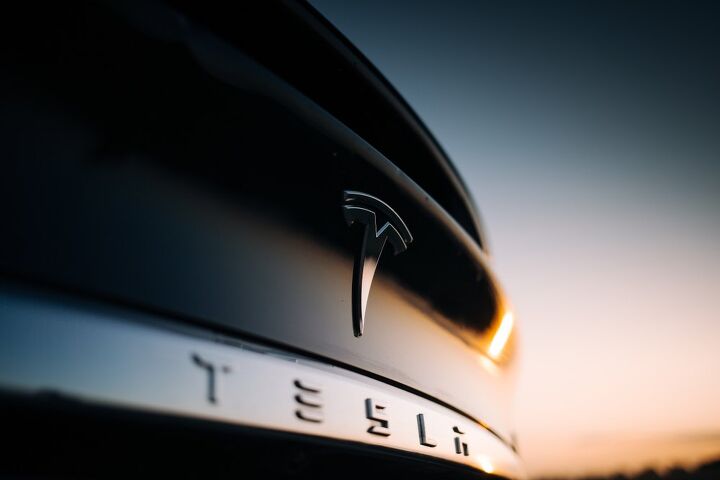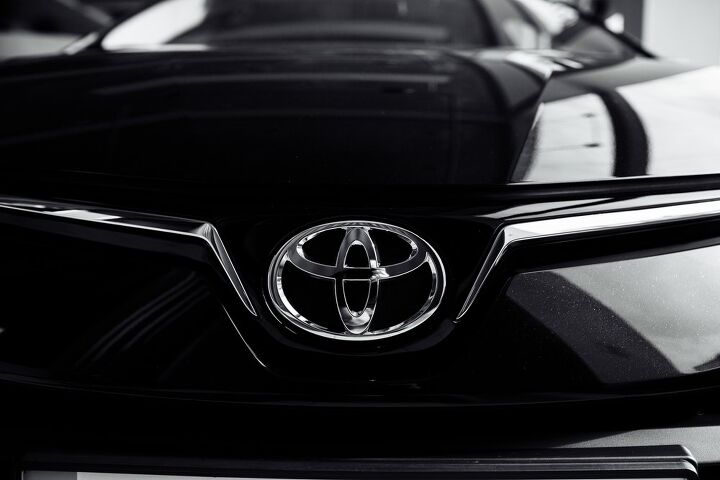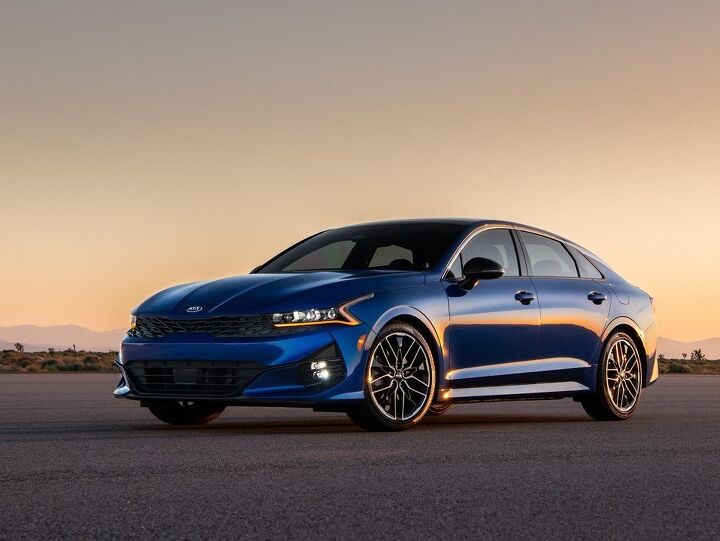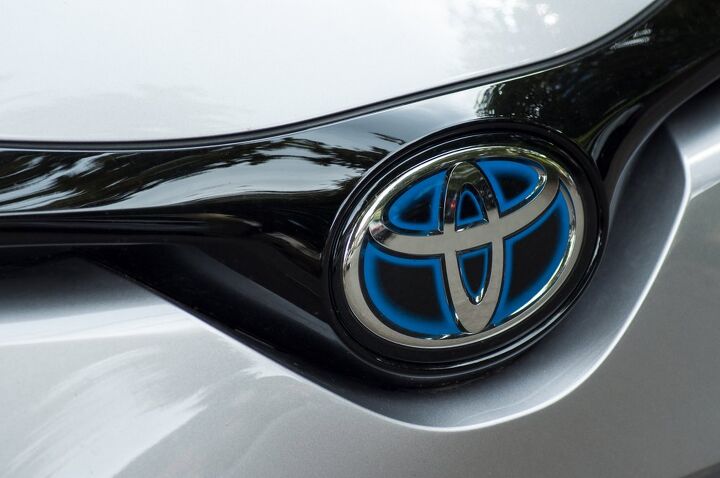#SignOfTheTimes
How Long Does the GMC Hummer EV Really Take to Charge?
The 9,000-pound behemoth that is the GMC Hummer EV dominated the news cycle this week after some light testing showed that it would take an owner four days to recharge using the most basic at-home setup.
The resulting freakout has split the media landscape and left electrification acolytes bickering with combustion-minded infidels in the automotive crusades. But the real tragedy seems to be the total abandonment of nuance when discussing the matter, as there’s a lot more at play than the new Hummer taking the better part of a week to fully charge. Neither side seems to see the whole picture and has elected to ignore some of the perks and failures associated with charging an all-electric vehicle.
Study: The Fifteen Most Overpriced Vehicles of 2022
With automotive prices skyrocketing these last two years, you may have found yourself waiting out the market until wealthy business magnates, unaccountable banking institutions, and multinational monopolies have had their way with it – hoping beyond hope that they’ll be a modestly priced car for you to live in when the economic dust finally settles.
But what if you can’t wait that long and need something today? While may not be able to steer you toward the deal of a lifetime, we do know which vehicles you might want to cross off your list thanks to a study targeting mainstream models seeing the highest dealer markups. Though, be warned, you’re still probably better off driving whatever you have today because the national average still has vehicles listed 10 percent above MSRP.
Automakers Still Dissatisfied, Lobbying Continues
Automakers are growing concerned about the future now that it looks like people have finally reached their breaking point in regard to elevated vehicle pricing. While the industry is citing inflation in the general sense, the truth of the matter is that companies’ own inability to manufacture vehicles and parts at anything approaching a normal pace resulted in price increases that vastly outpaced the devaluation of your preferred currency. This was made far worse by dealerships affixing their own markups to just about every model that compares favorably to walking.
Tesla to Begin Charging Subsription for Connectivity Services
Not to be outdone by the likes of BMW and Volkswagen Group, Tesla has decided to begin linking its connected services to a subscription-based payment plan. German automakers may be careening headlong into an era where you have to pay a monthly fee just to activate already installed hardware like heated seats. Though Tesla remains the master at conning customers into overpaying for nebulous features and we need only look at the Full-Self Driving suite, that has yet to manifest into genuine vehicular autonomy and just keeps getting more expensive, for an example.
While the standard connectivity package has always been free for the vehicle's lifespan, Big T is now saying that's only going to be true for the first eight years of ownership. The rationale here is that automotive companies have to continue supporting connectivity services and that there needs to be something to help offset that ongoing financial investment.
Report: Some Automakers Abandoning AM Radio
An acquaintance of mine recently said he would never purchase an all-electric vehicle and offered up a reason I never heard before. “They don’t come with AM radio,” he said.
While this surprised me, shifting technological preferences have indeed started to change how automobiles and broadcasters interact. As an example, a gaggle of Mazda owners found their vehicles stuck tuned to National Public Radio this February after a local station transmitted an FM data packet that effectively froze the cars’ infotainment system amid the swap to next-generation broadband services. That transition has already caused some interesting problems for the industry and electromagnetic interference has likewise become the default explanation for automakers limiting your frequency band choice in certain vehicles. But it doesn’t explain why some companies are ditching AM radio outright. In fact, a little research has shown a lot of the explanations given by manufacturers leave a lot to be desired.
EVs Are Becoming More Expensive, Not Less
A few years ago, the industry narrative was that all-electric vehicles would reach financial parity with their combustion-driven counterparts in 2025. The assumption was that this would gradually occur by way of ramping up battery production and leveraging economies of scale. However, reality had a different take, as the world is now confronting record-setting prices across the board. Manufacturer and dealer hikes have resulted in the average invoice of EVs rising to $54,000 — roughly 10 grand higher than the typical transaction price of gasoline-powered vehicles, according to J.D. Power.
With economic pressures spiking the value of all automobiles, hardly anything is leaving the lot for less than it could have been had for in 2020. But the increases seen on all-electric models are actually outpacing the models we’ve been told they’re supposed to replace.
Study Claims Gen Z Doesn't Like Buying Cars
Younger drivers have reportedly had it with the dealership experience, with Gen Z even more disenfranchised than Millennials. Though it’s difficult to imagine anybody visiting a showroom within the last 12 months having any other reaction. Incentives are down, prices are up, and there’s a good chance whatever you wanted to buy isn’t going to be on the lot anyway. Someone saying they had an exemplary dealer experience is becoming about as common as people claiming they enjoy going to the DMV.
However, CDK Global Inc. still opted to conduct a survey in the hopes of determining just how much less tolerant younger shoppers might be compared to older generations. The takeaway probably isn’t going to shock you, even if the sheer volume of first-time buyers that don’t care for dealerships might.
Ford Decides Paying for Ads Is Stupid
Ford CEO Jim Farley has said he sees little reason for the automaker to bother using traditional advertising campaigns for electric vehicles. Considering how often I see the Ford logo grace whatever screen I happen to be peering into, this would seem to go against everything I’ve been conditioned to accept. However the company believes its EVs practically sell themselves already, with the executive noting that the Mach-E has been sold out for quite some time.
“I’m not convinced we need public advertising for [electric vehicles] if we do our job,” Farley said during Wednesday’s Bernstein Strategic Decisions Conference.
How Shanghai Lockdowns Are Changing the Auto Industry
While the semiconductor shortage was long considered the excuse par excellence for why the automotive sector couldn’t produce enough vehicles during the pandemic, some manufacturers have begun pivoting to blaming supply chains that have been stymied by Chinese lockdowns. Toyota is probably the best-known example. But the matter is hardly limited to a singular automaker and market analysts have already been sounding the alarm bell that strict COVID-19 restrictions in Asia will effectively guarantee prolonged industrial hardship around the globe.
Back in April, Shenzhen was emerging from a month-long lockdown. However, the resulting downtime severely diminished the tech hub’s output which exacerbated global component shortages. While Chinese state-run media claimed regional factories maintained full-scale production during the period, the reality was quite a bit different. Meanwhile, Shanghai has remained under harsh restrictions since March and more look to be on the horizon. As an important industrial center and the world’s busiest port by far, the situation has created an intense backlog of container ships that are presumed to create some of the sustained problems that we’re about to explore.
Chinese Lockdowns Force Toyota to Cut Production Again
The automotive industry has basically resigned itself to running with lessened production for the foreseeable future. A significant number of automakers have suggested that it might be more lucrative to scale back output, reduce overhead, and focus on achieving broader margins per car during this prolonged period of economic and logistical duress. However, Toyota started the year saying it would do its utmost to raise production output as a way to make up for losses incurred during the pandemic. The company even said it anticipated things to gradually normalize through the spring.
Unfortunately, things have not gone according to plan. By March, the Japanese automaker had lowered its output goal for the fiscal year by 500,000 global units. Another 20 percent was lopped off for the month of April and leadership began expressing concerns that those preexisting goals might be totally untenable. While there were moments with the target actually rose, Toyota has repeatedly been forced to walk those claims back as the realities of the market dashed its dreams. Now, the company is once again cutting planned output for the month of June over supply chain issues with China.
Kia Rumored to End Stinger and K5 Production, Brand Says Nah
Following reports that the Hyundai Sonata may not be long for this world, there have been rumbling that the fate of the Kia Stinger and K5 sedan may also be in jeopardy.
The reasoning is obvious. After years of crossovers seeing an increased share of the global market, automakers have been dumping sedans so they can sell products that come with higher margins. A sizable percentage of the population has also been sold on the theory that higher-riding vehicles are automatically safer than their road-hugging counterparts. While that is endlessly debatable between models, there are aspects of crossovers that make real sense for the modern era. Storage capacity is typically better than what you’d find on a similarly sized sedan and the lengthened suspension travel can help the vehicle absorb the impact of pothole-laden streets that seem to be cropping up everywhere.
Will Toyota's Production Pause Go Global?
Following last week’s announcement where Toyota explained its need to scale back Japanese production by 20 percent this April, the automaker has outlined planned slowdowns for the foreseeable future. It’s citing all the usual problems. Countries are still employing various COVID-19 restrictions that are upending supply chains, semiconductor production for automobiles remains insufficient, and there’s a war in Eastern Europe that’s creating all-new troubles while exacerbating some of the more familiar ones. But scaling back output might not be the death sentence it sounds like.
With last year resulting in 10 million deliveries worldwide, Toyota actually managed to improve its sales against 2020’s year-over-year global production decline of 12 percent. And the last two years have also yielded enhanced profitability for the automaker, despite it having expressed repeated concerns about procuring enough components to keep popular models (like the RAV4) in stock. In 2021, Toyota saw $249.4 billion in revenue and even became the best-selling automaker in the United States, dethroning former top-dawg General Motors.
Toyota Cutting Production By 20 Percent Next Month
Earlier this week, we covered Toyota stressing over the feasibility of its current production plans. Automakers around the world are presently trying to suss out how to maintain solid profitability with diminished output, with Japan’s largest manufacturer suggesting the present state of the world might force it to do likewise.
While we assumed the resulting decisions would take a couple of weeks for Toyota to finalize, as it considered its many options, the company announced on Friday that it would need to cut domestic production by 20 percent for the month of April. The automaker framed this as part of its preexisting “recovery plan” necessary to account for supply chain issues that never seem to end, saying that diminished output would gradually normalize in Japan over the spring.
Toyota Considers New Production Strategy As World Burns
Toyota Motor Corp. is reconsidering its existing production strategy, citing ongoing global issues that are hindering its ability to manufacture vehicles at a normal pace.
Like most other automakers, Toyota has endured COVID restrictions, supply chains bottlenecks, component shortages, at least one cyberattack, and some new obstacles stemming from Russia’s invasion of Ukraine. These issues have already encouraged General Motors to pursue lower output as it focuses on selling on higher-margin vehicles. Though it’s hardly the only automaker signaling diminished production for 2022. Even the National Automobile Dealers Association is assuming 2022 will be another year of extra-tight inventories and wild markups. It’s something the industry was already doing, with Toyota becoming the next company opting to rejigger its targets to account for hard times.
Get Sterilized, Receive A Tata Nano
With a massively growing population, and no Chinese-style national one-child policy in place, sterilization campaigns in India’s provinces and municipalities are far from uncommon. But now, in the Rajasthani district of Jhunjhunu, officials in charge of sterilization campigns have found a new incentive to encourage Indians to undergo the procedure: the subcontinents growing obsession with automobiles. Britain’s The Independent was the first Western news outlet to report on the scheme, which offers those undergoing sterilization
a coupon for a forthcoming raffle, with prizes including a Tata Nano car, motorbikes and electric food blenders.





























Recent Comments